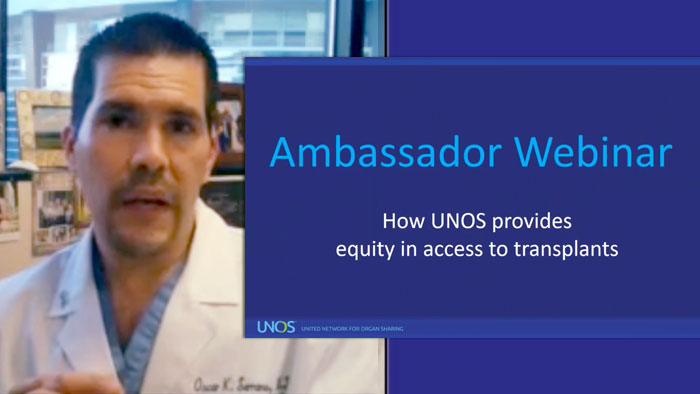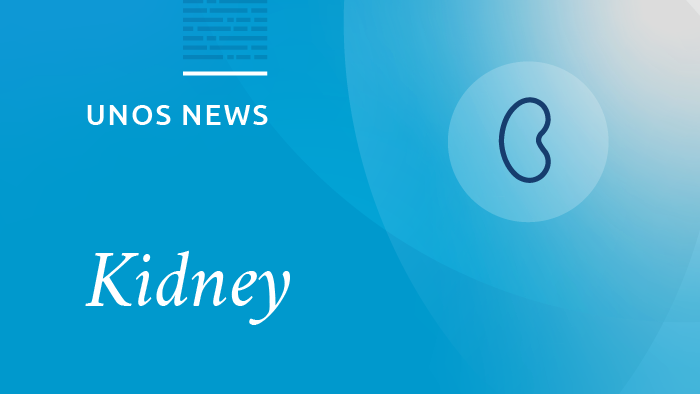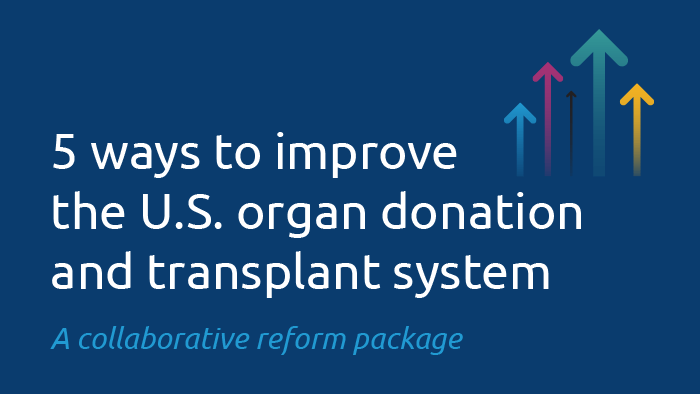
Improvement
Reducing disparities in access to transplant
Minority Affairs Committee member Oscar Serrano, M.D., on how the needs of minority and vulnerable populations are considered and addressed in policy development.
In March of this year, UNOS Ambassadors were invited to a virtual presentation featuring Oscar Serrano, M.D., a member of the Organ Procurement and Transplantation Network Minority Affairs Committee (MAC), to learn how UNOS is working to increase equity in transplant and reduce disparities in access.
Serrano is an abdominal transplant and hepatobiliary surgeon at Hartford Hospital and assistant professor of surgery at the University of Connecticut School of Medicine in Hartford, Conn., and has served on the MAC since 2019. The committee is charged with identifying and considering aspects of organ procurement, allocation, and transplantation with the potential to impact these populations in particular.
During his presentation to UNOS Ambassadors, Serrano shared how the committee takes an evidence-based approach, selecting projects based on data in order to provide input and recommendations related to ongoing efforts of other OPTN committees and the Board or Directors.
“The MAC works to ensure that issues and special needs of minority and vulnerable populations are considered and addressed in policy development,” says Serrano. “Each OPTN committee has a different charge, but collectively we all aim to advise on and develop organ transplantation policy.” Although the work may be different, “we work collaboratively to increase the number of and access to transplants, improve patient outcomes and promote patient safety.”
Analysis of transplant waitlist inactivations in the COVID-19 era
- The committee wanted to explore COVID-related waitlist inactivation patterns across the country to determine if any presented disparities or disproportionately impacted vulnerable or minority populations.
- Preliminary findings do not present a consistent pattern of disparity in waitlist inactivations related to demographics like race, ethnicity or socioeconomic status, and the MAC will monitor the issues on an ongoing basis.
Reasses race in eGFR calculation workgroup
- The eGFR is a marker that doctors use to measure kidney function and determine who needs a kidney transplant. Evidence shows that some groups have been disproportionately affected by using this metric, because GFR is calculated differently for Black patients.
- The MAC wants to reevaluate to use of race-based GFR calculations in listing and wait time accrual, especially in light of the current focus on racial justice in the country.
- A workgroup has developed out of the collaboration between the MAC and the Kidney Transplantation Committee, and includes Serrano.
Past projects include:
Do you have a special connection to transplant? Become a UNOS Ambassador and join thousands of other community volunteers and advocates who are raising awareness and educating the public about organ donation and transplantation, organ matching and how UNOS runs the nation’s transplant system.
“The Minority Affairs Committee works to ensure that issues and special needs of minority and vulnerable populations are considered and addressed in policy development.”
Oscar Serrano, M.D.






